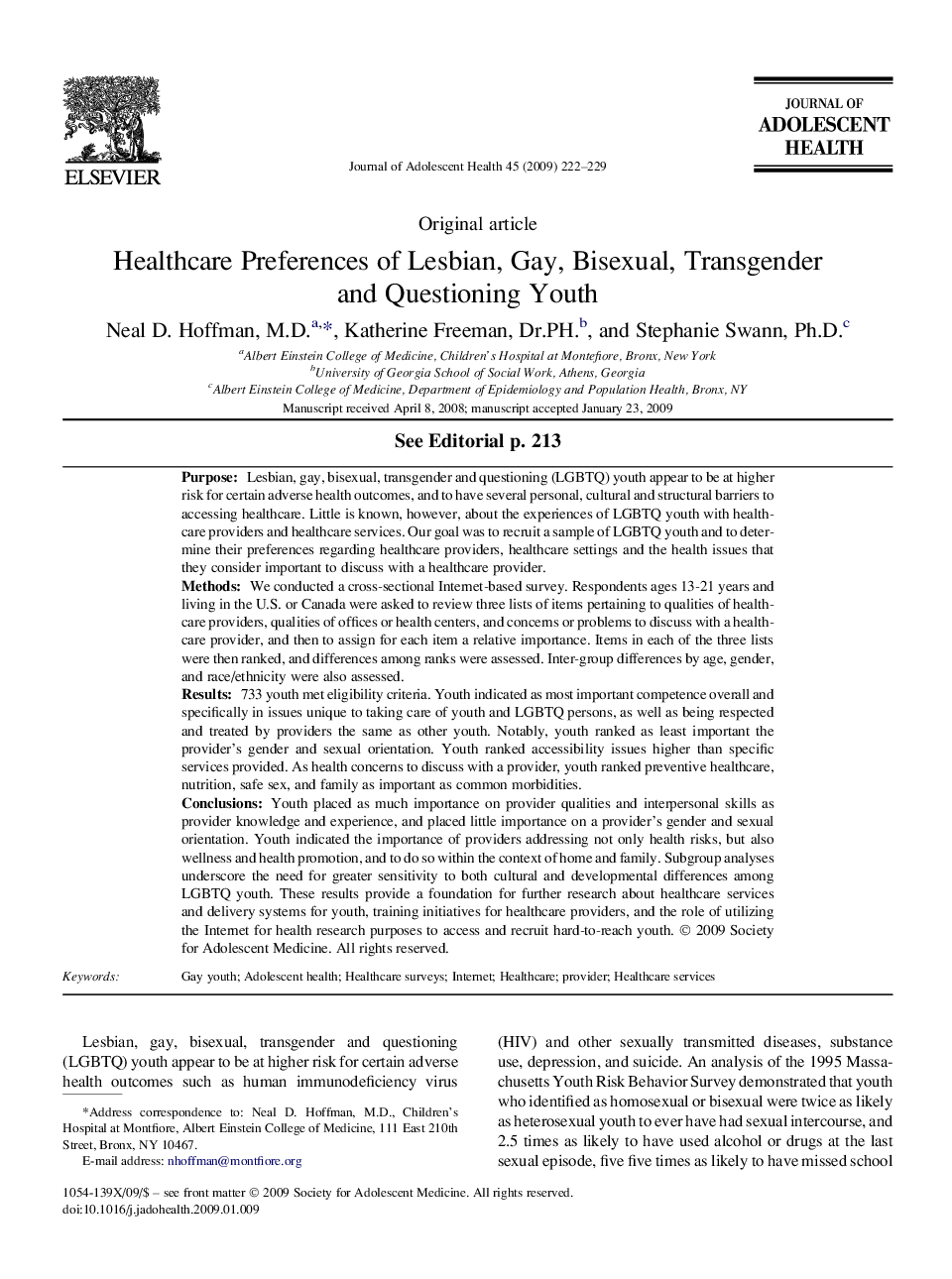| Article ID | Journal | Published Year | Pages | File Type |
|---|---|---|---|---|
| 1080686 | Journal of Adolescent Health | 2009 | 8 Pages |
PurposeLesbian, gay, bisexual, transgender and questioning (LGBTQ) youth appear to be at higher risk for certain adverse health outcomes, and to have several personal, cultural and structural barriers to accessing healthcare. Little is known, however, about the experiences of LGBTQ youth with healthcare providers and healthcare services. Our goal was to recruit a sample of LGBTQ youth and to determine their preferences regarding healthcare providers, healthcare settings and the health issues that they consider important to discuss with a healthcare provider.MethodsWe conducted a cross-sectional Internet-based survey. Respondents ages 13-21 years and living in the U.S. or Canada were asked to review three lists of items pertaining to qualities of healthcare providers, qualities of offices or health centers, and concerns or problems to discuss with a healthcare provider, and then to assign for each item a relative importance. Items in each of the three lists were then ranked, and differences among ranks were assessed. Inter-group differences by age, gender, and race/ethnicity were also assessed.Results733 youth met eligibility criteria. Youth indicated as most important competence overall and specifically in issues unique to taking care of youth and LGBTQ persons, as well as being respected and treated by providers the same as other youth. Notably, youth ranked as least important the provider's gender and sexual orientation. Youth ranked accessibility issues higher than specific services provided. As health concerns to discuss with a provider, youth ranked preventive healthcare, nutrition, safe sex, and family as important as common morbidities.ConclusionsYouth placed as much importance on provider qualities and interpersonal skills as provider knowledge and experience, and placed little importance on a provider's gender and sexual orientation. Youth indicated the importance of providers addressing not only health risks, but also wellness and health promotion, and to do so within the context of home and family. Subgroup analyses underscore the need for greater sensitivity to both cultural and developmental differences among LGBTQ youth. These results provide a foundation for further research about healthcare services and delivery systems for youth, training initiatives for healthcare providers, and the role of utilizing the Internet for health research purposes to access and recruit hard-to-reach youth.
